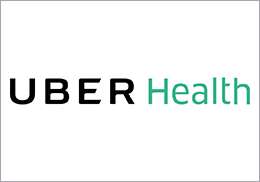 Cost and access aren’t the only barriers preventing patients from getting medical treatment. Around 3.6 million Americans—or one-third of all patients—miss medical appointments because they don’t have reliable transportation, according to Uber Health.
Cost and access aren’t the only barriers preventing patients from getting medical treatment. Around 3.6 million Americans—or one-third of all patients—miss medical appointments because they don’t have reliable transportation, according to Uber Health.
The National Patient Advocate Foundation (NPAF) refers to patients’ lack of transportation as the nation’s other health disparities problem.
“The last thing patients should be challenged with is getting to and from their medical treatment,” said Alan Balch, CEO of NPAF and the Patient Advocate Foundation, which provides patients with a range of services to obtain quality medical care. “Lack of transportation is a vastly underappreciated barrier preventing Americans from receiving the most appropriate evidence-based care and must be addressed at the state and federal levels.”
No-shows pose a fiscal problem for physicians. Health Management Technology says each unused appointment costs doctors an average $200/hour and amounts to $150 billion a year.
Uber is responding to the challenge with Uber Health. The ride-hailing platform allows healthcare providers at clinics, hospitals, rehab centers and more to assign rides for patients and clients from a central dashboard. Patients don’t need the app or even a smartphone to use the service.
When patients have a ride, they’re far more likely to make it to your office.
More than 100 healthcare organizations are already on the platform, having benefitted from the company’s beta test. The B2B service complies will patient privacy rules under HIPAA and compatible with many patient management software programs, according to Uber Health. The provider is billed directly for patient trips.
The cost of such services varies. Medicaid patients are covered for non-emergency medical transportation, but traditional Medicare patients are not, unless they have a supplemental Medicare Advantage plan. But there’s no question that ride-sharing services are a benefit for patients and physicians.
According to a study published in the Journal of Immigrant and Minority Health, 82 percent of patients with access to cars keep their appointments, compared to just 58 percent of patients without car access.
Uber Health works much as the retail version of the service, with patients receiving a text alert when a ride has been booked and related details. Uber Health communicates with physician’s offices via dashboard and reporting tools.
Patient transportation and shuttling services was unlikely a part of the medical school curriculum. But isn’t it worth the extra credit to make sure patients actually get the treatment they need?
Want more on nontraditional healthcare strategies? Learn how to get more patients to adopt telemedicine for starters. Read on.























